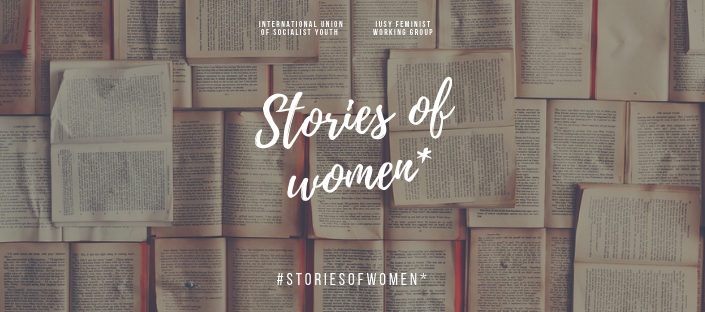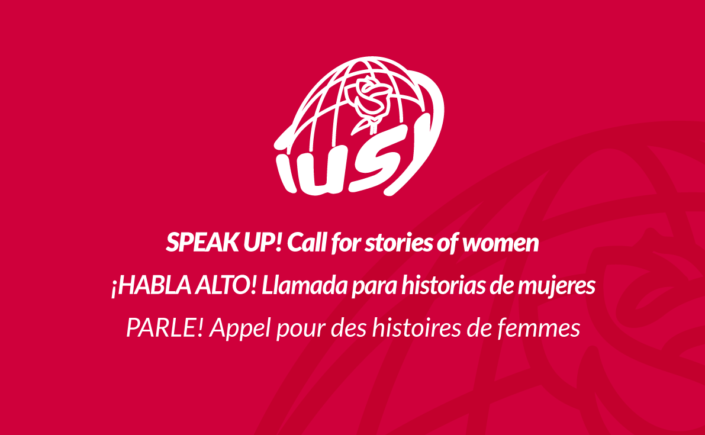This year is the 70th Anniversary of the Universal Declaration of Human Rights. The Convention on the Elimination of all Forms of Discrimination Against Women has existed for 39 years and been ratified for 37 years. For 70 years human rights have been a protected concept and for 37 years the promotion of gender equality has been a corner stone of international law. Amnesty International labeled 2018 as a year of female resistance, we have seen women* raising their voices and kicking ass. We have seen successes like repeal the 8th, the Ni una Menos campaign in Latin America, the protests of endemic violence in South Africa and India, the brave women* in Saudi Arabia and Iran who has faced imprisonment for protesting the right to drive and the forced wearing of the hijab respectively and the thousands of people across the globe who have continued the #MeToo movement are among the highlights. [1] Although 2018 has been a year full of women*’s rights heroes there has been a reason for it. We continue to see countless violations of human rights and attacks on women* across the globe. Women* remain a marginalised group and continue to suffer discrimination and violations.
During the International Day for Women* Human Rights Defenders (WHRDs), UN experts highlighted that it is becoming increasingly difficult and dangerous for women* human rights defenders to do their job. This because in addition to facing the standard risks, threats and intimidation that somehow comes along with defending our fundamental rights, women* face more multifaceted attacks based purely on their gender. Carrying out the work itself often challenges social constructs of family and gender roles which can cause hostility from the general population and authorities which lead to stigmatisation, ostracism by various groups including community leaders, faith-based groups, families and communities who consider them to be threatening religion, honour or culture through their work. Often the real threat to women* human rights defenders is the work itself, taking steps to advancing women’s rights makes them targets of attacks. Women*’s rights defenders are at a higher risk of “being subjected to different forms of violence, prejudice, exclusion and repudiation than their male counterparts” [2] according to UN experts.We need to continue to demand justice to women*’s rights defenders like Marielle Franco who was murdered for promoting the rights of black women*, LGBTI and young people. We need to continue to speak up for women’ human rights defenders, we need to continue to celebrate their bravery and we need to come together to stop attacks against them.
The wave of nationalism and populism brings with it attacks on women*. Nationalistic and populist regimes will always have negative consequences for women*. We have attacks on women* ranging from wanting to put us back in the kitchen and to birth more babies (despite the fact that our earth is overpopulated) to continued victim blaming. Women* are not and should never be reduced to being incubators without rights of their own. Women* will reproduce when they choose to, but it is not their whole identity or purpose to do so. The attacks on women*’s right to control their own bodies are one of the fundamental reasons why we are not yet equal to men. Until we can control our own bodies both legally and socially we will not be equal to men. For example El Salvadors total ban on abortion can be seen more as a war on women*. The country has yet another poster child for the trauma, abuse and punishment this type of ignorance and violation causes. The recent poster child is a 19-year-old rape victim who gave birth to a stillborn in a latrine who has been sentenced to 30 years in prison for murder. Countless women* have been imprisoned in the country for having miscarriages, as a result of that abortion is banned in all circumstances. The ban punishes mostly poor young women* with obstetric complications. [3] The problem becomes that for women who cannot access safe, legal and free abortions and in the case of women* in El Salvador, once she becomes pregnant, she loses all her rights because the fetus has more rights than she does. We have to continue to demand free, safe and legal abortions for all women*. You do not have to be pro-abortion, but you have to be pro choice. What you cannot do is restrict another woman*’s right to choose; her body, her life, her choice.
2018 is ending and our legal systems are still full of prejudice and victim blaming. Women* are not believed. 2018 has seen countless of rape cases where the rapist has been acquitted and the victim has 1) not been believed 2) blamed for what happened. One of the most famous and outrageous cases was that of the 17 year old girl in Ireland who was raped by a 27 year old man. The 27 year old in this case gets acquitted because the defense lawyer uses the victim’s underwear, a thong with lace, to say that she consented.[4] Never in my life has my underwear said if I wanted to have sex or not. So if she were wearing boy-shorts or “granny” panties her refusal would be different? Victim blaming has to stop. We cannot accept the continuance of this awful patriarchal system to continue. We need to continue to raise our voices and speak out against victim blaming.
NewsMavens (an ace European news outlet solely consisting of female journalists and of women* picking the news) released a report on Obstetric violence, a report revealing the prevalence of gynecologists’ gas lighting women*. What struck me the hardest was not the countless descriptions of harm caused to women (although it did make me want to puke and hit a wall simultaneously) it was this quote: “many gynecological procedures are done without pain relief or the anesthetic is not working properly and women are not believed when they complain. Other times, as in childbirth, pain relief is forced on women. Women’s point of views [are] not taken into account when it comes to their experiences and to the care they need or want in maternity and childbirth. They are infantilized and made to feel inferior, which puts their life and the life of their babies at risk.” [5] Further, it was that we are not discussing our reproductive health and rights, as it is seen as something intimate. But most of all the painful fact is the culture of “this is just how it is done”. Traumatic births, violence from our health care providers and procedures without anesthetics is not something women should have to endure going into 2019. We need to continue to create forums for women’s voices and stories to be heard. We need to create better care policies and continue the fight for women to be believed.
These are just a few examples of how women*’s rights are restricted across the globe and of systemic issues that we need to continue to fight to change. So in 2019, join me and let’s mobilise to defend women*’s rights defenders, strengthen our sexual health and reproductive rights, end victim blaming and strengthen women*’s position in society so that our voices are not only hard but believed. Sign petitions, join movements, speak out in person and online. No one can do everything, but we all can do something.
Amanda Lilliefeldt
IUSY Project Manager, Feminist and Human Rights Activist
[1] https://www.amnesty.org/en/latest/news/2018/12/oppressive-sexist-policies-galvanize-bold-fight-for-womens-rights/
[2] https://www.ohchr.org/en/issues/women/wrgs/pages/hrdefenders.aspx
[3] https://www.theguardian.com/global-development/2017/jul/06/el-salvador-teen-rape-victim-sentenced-30-years-prison-stillbirth
[4] https://www.nytimes.com/2018/11/15/world/europe/ireland-underwear-rape-case-protest.html
[5] https://newsmavens.com/special-review/914/when-gynecologists-gaslight-women


